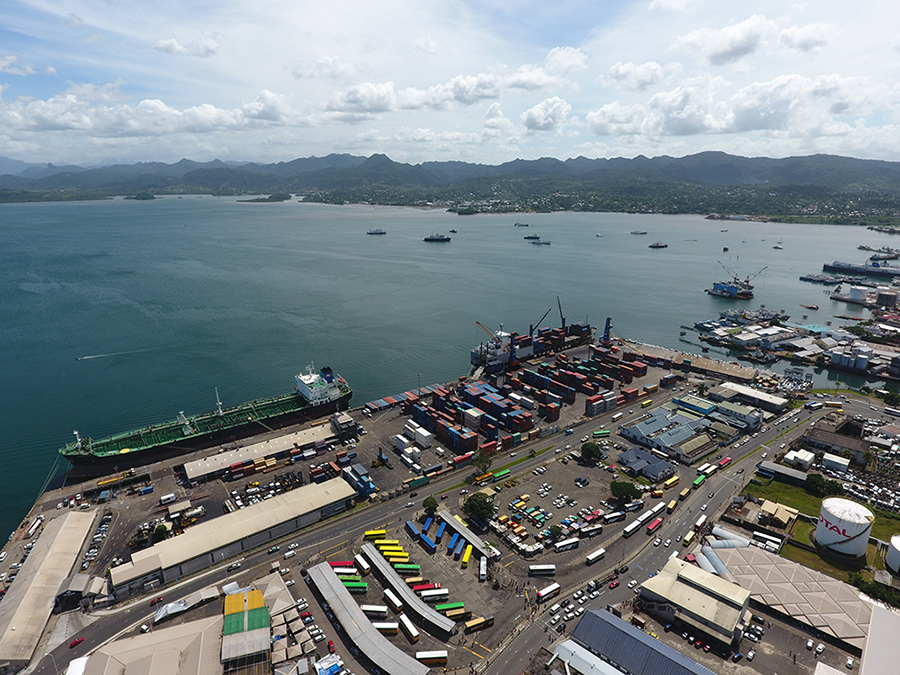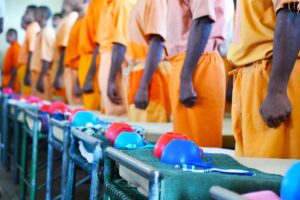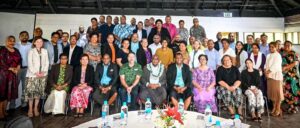Fiji’s Minister for Employment Agni Deo Singh outlined measures to mitigate the negative effects on children left behind when their parents participate in the labour mobility programme.
These measures include enhancing data collection and reviewing recruitment processes to discourage both parents from participating simultaneously.
Singh detailed the measures in response to a question raised by Assistant Minister for Women, Children, and Poverty Alleviation, Sashi Kiran, who queried the government’s commitment to safeguarding the well-being of these children.
“Registration forms will include information on the children of workers, whether under the care of parents left behind or guardians, to strengthen our data collection. Enabling effective monitoring of children may be exposed to vulnerable situations,” he said.
The review of recruitment and selection processes is also being undertaken to ensure one parent remains with the children. The ministry is also focusing on the role of appointed country liaison offices, which will address cases of family disengagement.
“The provision for pastoral care by conducting financial literacy programs, which the families of workers can actively participate in, will ensure that remittances are managed effectively and contribute to the long-term wellbeing of the children.”
The ministry is also considering establishing networks with the Ministry of Women, Children, and Social Protection and the Legal Aid Commission to provide essential support to the children of workers. The Fiji Council of Social Services will be included in these efforts.
To maintain family connections, the government encourages workers engaged in long-term placements to visit their families during the four-week break in December. He also mentioned a family accompaniment program that allows Fijian farmworkers to bring their families to Australia. Recent information sessions held with the Department of Foreign Affairs and Trade have been well received by interested families. “Under the conditions of this visa, spouses will have full work rights while in Australia, and children can attend local public schools without paying international student fees,” Singh added.
A significant development comes from the Australian Federal Government’s recent introduction of a workplace justice visa. This initiative allows migrant workers, including those in labour mobility programs, to extend their visas while seeking justice if exploited. This, coupled with stronger protections against visa cancellation, means workers no longer have to choose between maintaining their visa status and seeking justice for workplace wrongdoings.
“No longer will workers need to make the difficult choice between maintaining their visa and seeking justice at work,” Singh stated, adding that the visa enables redeployment within the same industry.
“I’m saying all these things, Mr. Speaker, because workers normally run away when they are ill-treated in the workplace and do not get justice. Now this will prevent them from getting into anything illegal because they have their rights. And, Mr. Speaker, all this is because of the continuous dialogue we have been having with the Australian authorities and relevant stakeholders. Had this been done several years earlier, we would have mitigated many of these problems by now.”
Collaboration is also crucial, Singh reiterated, pointing out that safeguarding children’s rights in the context of labour mobility requires comprehensive strategies and cooperation among government, civil society organizations, and stakeholders.
A working group is being established to monitor and resolve issues faced by the children of labour mobility workers, involving the Ministry of Women and Children, the Ministry of iTaukei Affairs, and other relevant bodies “to prevent children from being harmed in any way due to the prolonged absence of parents and to ensure that children remain safe, supported, and connected with their families.”
Singh also highlighted a recent meeting hosted by UNICEF and the Government of Vanuatu, which included representatives from labour-sending countries. During the meeting, stakeholders discussed a report on the negative impacts of the scheme on children. The outcome document, expected in the coming weeks, Singh says, will inform further strategies to prevent and mitigate these impacts.









